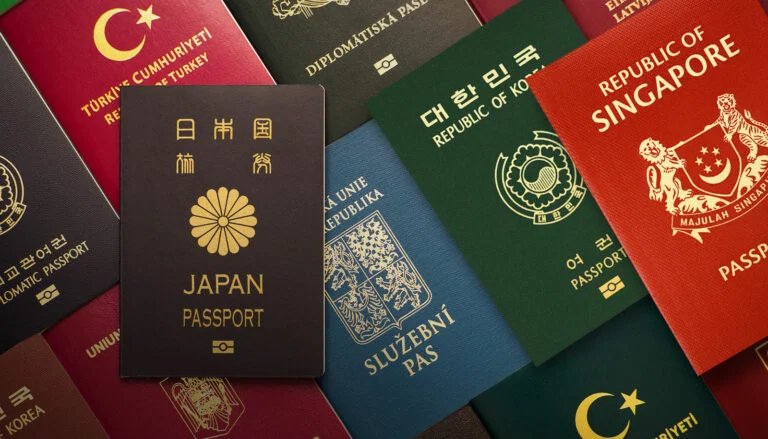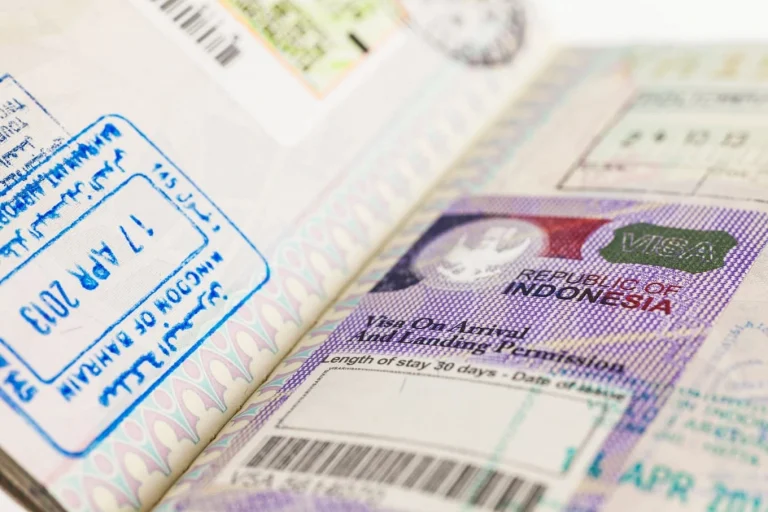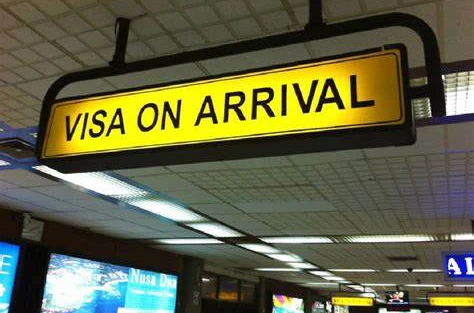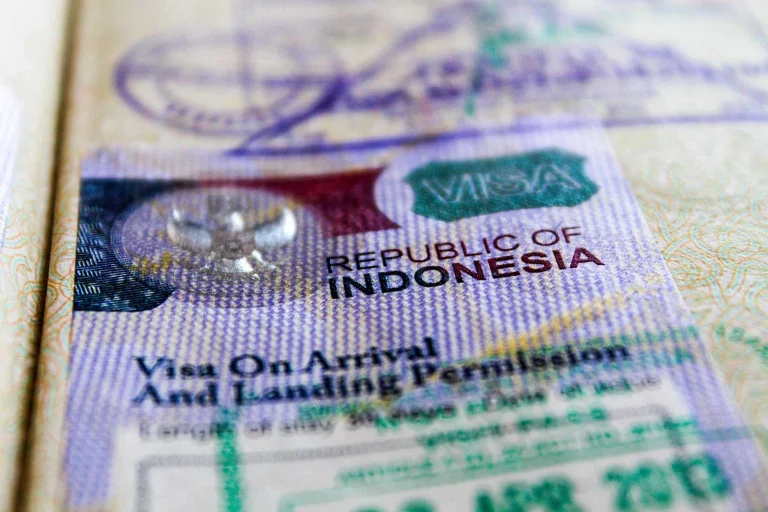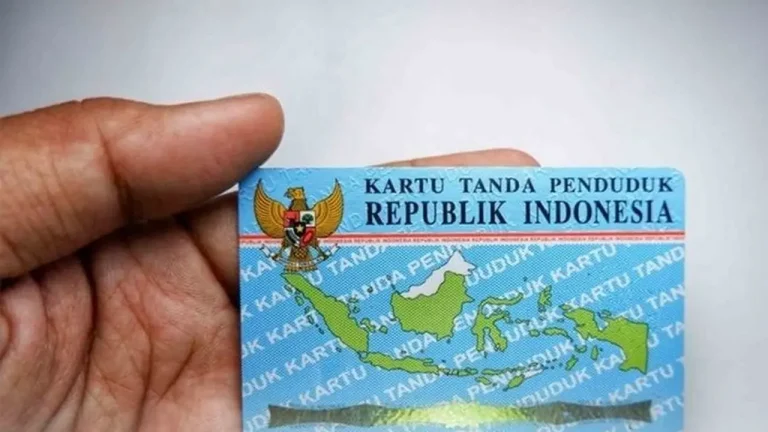Living in Bali: All Visas Options Summarised
When you plan to relocate to Bali, one question will come up at some point: “which is the visa that I need?”.
The truth is, there is no one size fits all answer when it comes to visas in Indonesia, as situations can differ a lot depending on your nationality, your expatriation plans or who is joining you on the journey.
Here is a complete overview of the visas that you could be interested in if you want to live in Bali, whether it’s only for a few months or forever, and of course, everything in between.
PS: If you are looking for Stay Permits, Celerity has sum up all options available here regarding all possible situations.
Summary of the best visas to live in Bali
| Visa | Duration on issuance | Max Duration with extensions | Multi entry | Tax residency in Indonesia | Option to sponsor your family members | Working in Indonesia | Need for sponsor | Main requirement | Price |
|---|---|---|---|---|---|---|---|---|---|
Visit visa 60 days | 60 days | 180 days | No | No | No | No | No | Bank statement with USD 2,000 | From USD 250 |
Visit visa 180 days | 180 days | 180 days | No | No | No | No | No | Bank statement with USD 2,000 | From USD 565 |
Multientry social visa | 1 year but must exit Indonesia every 60 days | 1 year | Yes (mandatory every 60 days) | No | No | No | No | Bank statement with USD 2,000 | From IDR11.9M / USD 750 |
Remote worker visa | 1 year | 1 year | Yes | No | Yes | No | No | Foreign work contract/invoices with 60K yearly salary | From USD 900 |
2nd home visa | 5 years | 5 years | Yes | No | Yes | No | No | USD 135k deposited in an Indonesian bank for a few months (time to process) | From IDR49M / USD 3,000 |
Investor KITAS | 1 or 2 years | 5 years | Yes | Yes | Yes | No (unless you are director of your company) | Yes | Owning at least 10% (10 billion rupiah) in an Indonesian company | From USD 1,220 |
Working KITAS | 6 months or 1 year | 5 years | Yes | Yes | Yes | Yes | Yes | Being hired by an Indonesian company | From USD 2,440 |
Retirement KITAS | 1 year | 5 years | Yes | Yes | Yes | No | Yes | At least 60 years old and USD 3K / month retirement | From IDR 15,9M / USD 1K |
| Family / dependant KITAS | 1 year | 5 years | Yes | Yes | / | Yes if you apply for a work permit | Yes | Being a spouse / child of an Indonesian citizen / KITAS holder | From IDR 13.4M / USD 850 |
Variables to be aware of to help you pick your visa when you aim to live in Bali
Before we detail all visa options to live in Bali as a foreigner, let’s dive into several parameters that can lead you towards one visa over another. Here are the main variables that you should always keep in mind before picking a visa to live in Bali.
You don’t have much visa options if you plan to work with / within Indonesian company

Living in Bali and working in Bali are two completely different things. Working online from Bali and working in Bali are also two different things.
For instance, many digital nomads are living full time in Bali, but technically do not work at all in Bali. They do not have any Indonesian company as clients, nor do they have physical customers, offices, storage facilities and so on. As far as the Indonesian immigration and tax department are concerned, these people are not having any taxable activity and income in Indonesia, so they do not necessarily need to have a residence permit or a working permit. It’s their home country’s problem.
However, the moment you engage with any Indonesian company or any physical person in Indonesia, whether it’s as a service provider, an employee, or any other type of business that makes you earn money in / from Bali, then you will need a working resident visa (called KITAS) sponsored by a company and the matching work permit.
There is simply no way around that.
Making money in Bali without the proper visa and work permit is a serious offence that can easily make you deported, heavily fined and sometimes even jailed.
So if you really want to live in Bali while working in Bali, you have very few options in terms of visas. If you are employed, you will always need a working KITAS. If it’s your company, you will have a bit more options, but not a lot either!
Assess your short / mid term Bali goals before committing to any visa
If you do not work directly with Indonesian companies, then you can assess a bit more your short term and longer term goals to pick your visa.
For instance, you might want to stay in Bali a few months or more to assess whether living in Bali is for you or not. In this case, it’s usually recommended to go with a visa that is cheap and simple to get, even if it means being in an “in-between” situation for a few months.
If you like your initial experience, you can commit to a residence visa (a KITAS) that is usually more expensive, more complicated to obtain and that has implications with your home country that need serious consideration.
For more details, we recommend reading: What is a KITAS? & How to become a permanent resident in Indonesia?
Not all visas have the same costs and maintenance
If cost is an important factor for your visa choice, then keep in mind that some visas in Bali require extensions, getting out of the country and other trips to the immigration (or your agent office) that can quickly add up.
Do not be fooled by the low prices you are seeing in advertisements and compare the costs including everything:
- Initial visa costs including taxes and agent fees
- All additional documents if they are not included in the initial price
- Price of visas extensions (if any)
- Total cost of a visa run outside of Indonesia (Singapore / Malaysia for example)
The option to get in / out of Indonesia doesn’t come automatically with all visas

Most visit visas in Indonesia are single entry.
In simple terms, it means that the moment you get out of Indonesia, your visa will expire. If you want to re enter again in Indonesia, you will need to reapply for a new visa from the beginning.
The long term visas or residency cards called KITAS usually come with multi entry, but it’s a specific permit that needs to be requested.
Certain visas allow you to bring your family (spouse, children) with you
If you intend to live in Indonesia as a family, it’s good to know that some visas allow you to do so with ease compared to others.
For instance, a simple visit visa doesn’t allow you to sponsor your wife / husband or children. So you will need one visit visa per person.
On the other hand, some resident visas such as KITAS allow you to sponsor your spouse and children. Of course, they will still need a visa to live in Bali, but once the “main” visa is obtained, the other members of the family can get a similar resident visa in a much simpler manner and at a lower cost.
Your visa choice can influence your tax residency status with your home country AND Indonesia
It’s important to keep in mind that long term visas, especially ones where you officially become a resident, may have a big influence on your tax residency status both in Indonesia and in your home country.
It might come with big perks and big cons depending on your situation.
Among the things that could be influenced both in your home country and Indonesia by obtaining residency in Indonesia:
- Your tax residency status
- Your (in)eligibility for social security
- Social welfare contributions and eligibility
- Retirement contributions and eligibility
- Ease / Difficulty to open bank accounts / obtain loans
So even when you can relatively easily get a residency status, you should always study your situation in depth to know if it will really benefit you in the long run.
On the subject : How can you (legally) live tax-free in Bali?
Main visas to live in Bali and who they usually fit
Here are the main visas you should consider if you intend to live in Bali, even for a few months. We’ll detail their pros, cons, and who they should fit the most.
The social / visit visa (max 180 days) : the best visa to enter Bali, stay for a few months and decides whether living in Bali is for you or not
The social visa is the perfect visa to stay a few months in Bali with minimal hassles. It’s easy to get, relatively cheap and lets you figure out whether or not you’d like to live on the island, or anywhere else in Indonesia for that matter.
We can mention two main kind of social or visit visas:
- The one valid for 60 days, that can be extended 2 times for a total of 180 days
- The one valid for 180 days with no possibility of further extension
Pros of the social / visit visa
- Easy to get
- Cheap
- Up to 180 days validity (either 60 days renewable 2 times, or directly 180 days)
- You remain resident of your country
Cons of the social / visit visa
- Not a multi-entry visa. If you exit Indonesia, you’ll lose the visa and need to reapply from scratch.
- It is strictly forbidden to work / earn money from Indonesia
- You cannot sponsor your wife / children, then will have to apply on their own
- You will need a visa run every 6 months at the very least
- You are not an Indonesian resident
Perfect fit for the social / visit visa
- You only stay in Indonesia for few months without ever working with Indonesian companies / on Indonesian soil (ie: digital nomad, long holidays)
- You consider moving to Bali but want to test the waters first
- You are planning on investing in Indonesia (business, villa etc…) but need to assess further before committing
- You do not need to exit Indonesia very often
- You are a retiree that do not qualify for retirement KITAS / golden visas / 2nd home visas
The multiple entry visit visa (1 year): interesting when you exit Indonesia at least every two months
The multiple entry visa is a sort of cousin of the “usual” visit visas. Its requirements and pros and cons are the same, with few important differences: it’s a multi entry visa valid for one year, with stays that must stay below 60 days each time.
In other words, you have a visa valid for one year but must get in / out of Indonesia every 60 days at least. It’s quite a niche visa with significant perks if you fit the profile.
Pros of the multiple entry visit visa
- 1 year validity
- Multi-entry
- Cheap
- You remain resident of your country (you are still a visitor in Indonesia)
Cons of multiple entry visit visa
- You need to leave Indonesia every 60 days
- You are still forbidden to work
- You can’t sponsor your family
- You are not an Indonesian resident
Perfect fit for the multiple entry visit visa
- Citizens from neighbouring countries (Singapore, Malaysia, Australia…) working in shifts or having a 2nd home in Bali
- People working for foreign companies in the ASEAN region that travel frequently and want to be based in Bali
- Foreigners involved in purchasing / sourcing activities across Asia that want to be based in Bali
- Professionals that are frequently invited to attend meeting or trade shows in Indonesia
- Retirees that come home very often and do not need / do not qualify for retirement KITAS
Remote worker visa (1 year): the perfect visa (KITAS) for the remote worker employed by a foreign company
It’s no secret that Bali is a paradise for digital nomads. Immigration tried to attract them even more with this new visa specially tailored to their needs.
In short, the remote worker visa allows you to be a resident of Indonesia (thus having a KITAS) for one year, as long as you meet the requirements.
The big pro being that you can easily be a resident of Indonesia, and have a permit that allows you to freely enter and exit Indonesia like any resident during the validity period.
Pros of the remote worker visa
- 1 year validity
- Resident status (can open bank accounts, get driving licences…)
- Multi-entry
- Tax-free: your salary is taxed in your home country
- You can sponsor your spouse / children
Cons of the remote worker visa
- You need to have a working contract with a foreign company stating that you are a remote worker
- Your contract and bank statements must show that you are making at least $60,000 per year
- You are not allowed to work for Indonesian companies / individuals or carry any other commercial activity in Indonesia
- The process can take longer than visit visas
Perfect fit for the remote worker visa
- You are employed remotely in a company abroad and you make at least $60K / year
- You want to live in Bali at least a year with resident status
- You want to move to Bali for a year or more as a family and have one of the parents that can qualify for the visa and sponsor the other members of your family
The 2nd home visa (5 years) : a great opportunity to get a long term residency visa for the digital nomads that can qualify
The 2nd home visa is a great option for foreigners who are willing to invest some money in Bali but do not want to work in an Indonesian company or have any sort of business entities in Bali.
One of the big perks of this visa that is often overlooked is that you can sponsor our whole family with a dependent / family visa if you qualify.
Pros of the 2nd home visa
- 5 year validity
- Resident status (can open bank accounts, get driving licences…)
- Multi-entry
- Tax-free on offshore income (unless you want it otherwise)
- You can sponsor your spouse / children
- You can use the minimal required funds to buy a property
Cons of the 2nd home visa
- You need to have a bank deposit of at least IDR 2,000,000,000 (USD 135,000) or equivalent to qualify
- You can’t work for an Indonesian company or have any sort of business in Indonesia (you can’t have a work permit)
Perfect fit for the 2nd home visa
- You have $135K or equivalent, offshore income (digital nomad, passive incomes, business you can manage from abroad…) and consider relocating to Bali
- You’ve already explored Bali for a few months on social visas and wish to settle as a resident so that your life is more stable
- You are retired with a lump sum and/or you are not from a country eligible for the retirement visa
Investment KITAS: usually the best visa for investors and entrepreneurs in Bali
Entrepreneurship and investment in a foreign country can be a tough call, which is why the Indonesian government is always trying to accommodate the ambitious foreign entrepreneurs carrying out their projects in Indonesia.
If you own 10% of the shares of an Indonesian company (PT-PMA) that has a capital of more than IDR 10,000,000,000 then you can get an investor KITAS, that can give you a lot of perks.
Pros of the investment KITAS
- 2 years validity is standard
- Resident status (can open bank accounts, get driving licences…)
- Multi-entry
- You can sponsor your spouse / children
- You can use the minimal required amount to fund your business / buy properties
- If you are the director of a company, you won’t need a work permit / work KITAS (much cheaper that way)
Cons of the investment KITAS
- You need to invest your money in Indonesia, which can be a scary step for some people
- Unless you are the director of a company, you are still forbidden to work in Indonesia (you can’t get a work permit for this visa)
Perfect fit for the investment KITAS
- You are starting your own business in Bali with your PT-PMA, with enough capital to sponsor yourself
- You are investing in Bali property market with a PT-PMA that you own or share with others
- You are investing in other people’s companies in Indonesia and wish to relocate without working in Bali
Working KITAS: your only option if you are hired by an Indonesian company or wish to make money from Indonesia
If you want to “really” work in Bali, meaning being hired by an Indonesian company, have any type of business relationship with Indonesian permanent establishment, or hold any type of physical activity on Indonesian territory, then you will need a working KITAS sponsored by the company hiring you or carrying your activities under its name.
Unfortunately, even if the working KITAS grants you a lot of perks, especially the one to work in Indonesia, it is also a visa that is notoriously hard to get, on top of being expensive for the company hiring you.
Pros of the working KITAS
- 1 year validity, extendable up to 5 years
- Resident status (can open bank accounts, get driving licences…)
- Multi-entry
- Can get a work permit and work legally in Indonesia / with Indonesian companies as clients
- In some cases, an Employer of Record contract can allow you to freelance and get your own clients in Bali under the name of a local hiring company, without having to set up your own company
- You can sponsor your spouse / children
- You automatically are registered to national healthcare and retirement when you are employed
- No amount needs to be invested
Cons of the working KITAS
- You will need a local company sponsoring your visa (easier said than done).
- Most expensive KITAS and visa in general. The Indonesian government tries to protect the local workforce by discouraging the need for foreign workers.
- You will usually need a relatively high education level (bachelor level…) or expertise / experience in a specific field to “justify” the need to hire a foreigner for the position
- The foreigner employed on a working KITAS must have a monthly base salary of 10 millions IDR or higher (much higher than for Indonesian citizens)
- The process to get a working KITAS is lengthy and requires many administrations approvals (immigration, tax department, ministry of manpower and so on)
- Since you can earn income in Indonesia, you will be an Indonesian tax resident
- You are only allowed to work for the company hiring you / sponsoring your KITAS
Perfect fit for the working KITAS
- You are hired by an Indonesian company (PT-PMA)
- You want to freelance / consult for Indonesian companies / individuals under a local company officially hiring you
- You are an investor in a company with an active role and income, but not as a director
Retirement KITAS / Golden Visas: great visas to live in Bali as a retiree
If living in Bali for you means retiring in Bali, then you might be in luck as there are two visas specifically made for that.
The retirement KITAS (1 year renewable up to 5 years) and the golden visa allow you to settle in Bali with ease if you qualify.
Pros of the retirement KITAS / Golden visa
- 1 year validity, extendable up to 5 years (Retirement Kitas) – 5 years directly (Golden visa)
- Resident status (can open bank accounts, get driving licences…)
- Multi-entry
- You can sponsor your spouse
Cons of the retirement KITAS / Golden visa
- You need to be 60 years old minimum to be eligible
- You need at least USD 3,000 or equivalent in monthly retirement to qualify for both visas
- You need a sponsor for the retirement KITAS, but not for the Golden visa
- You need to hire at least two staff to be eligible (maid / gardener…)
- You need to have a house / apartment lease in Indonesia to be eligible
- You can’t work in Indonesia on any retirement visa
Perfect fit for the retirement KITAS or Golden visa
- 60 years old or above with USD 3,000 or more in retirement that wish to live in Bali as a resident
Family KITAS: the best visas to live in Bali when you depend on someone with a KITAS / an Indonesian citizen
The family KITAS, also called dependent KITAS, are different types of visas that allow people who have family ties with Indonesian citizens or KITAS holders (so Indonesian residents) to live in Indonesia along with them. The Indonesian citizen or the KITAS holder can therefore sponsor the KITAS of its family members.
Of course, this is only restricted to the closest family members: spouse and children.
Pros of the family KITAS
- 1 year validity
- Multi-entry
- Resident status (can open a bank account, get a driving licence…)
- Only one person needs in the household needs to be an Indonesian citizen or Indonesian resident (KITAS holder) to sponsor the others
- Fast and easy to get KITAS compared to others (you usually already have all papers at hand)
- Cheapest KITAS in most cases
- The spouse married to an Indonesian citizen can “freelance” informally in Indonesia on a small scale
- Easier to find a job in Indonesia since the hiring company doesn’t need to sponsor and pay for the KITAS but “only” the work permit
Cons of the family KITAS
- Not everyone has family ties with Indonesian citizen / KITAS holders
- Dependant / Family KITAS are still a big cost for big foreign families living in Bali since you need one KITAS per person
- Dependant / Family KITAS holders are not allowed to work by default, although they can apply for a work permit if they are hired by a company
Perfect fit for the family KITAS
- Your wife / husband is an Indonesian citizen or a foreigner holding a KITAS
- At least one of your parents is an Indonesian citizen or a KITAS holder

